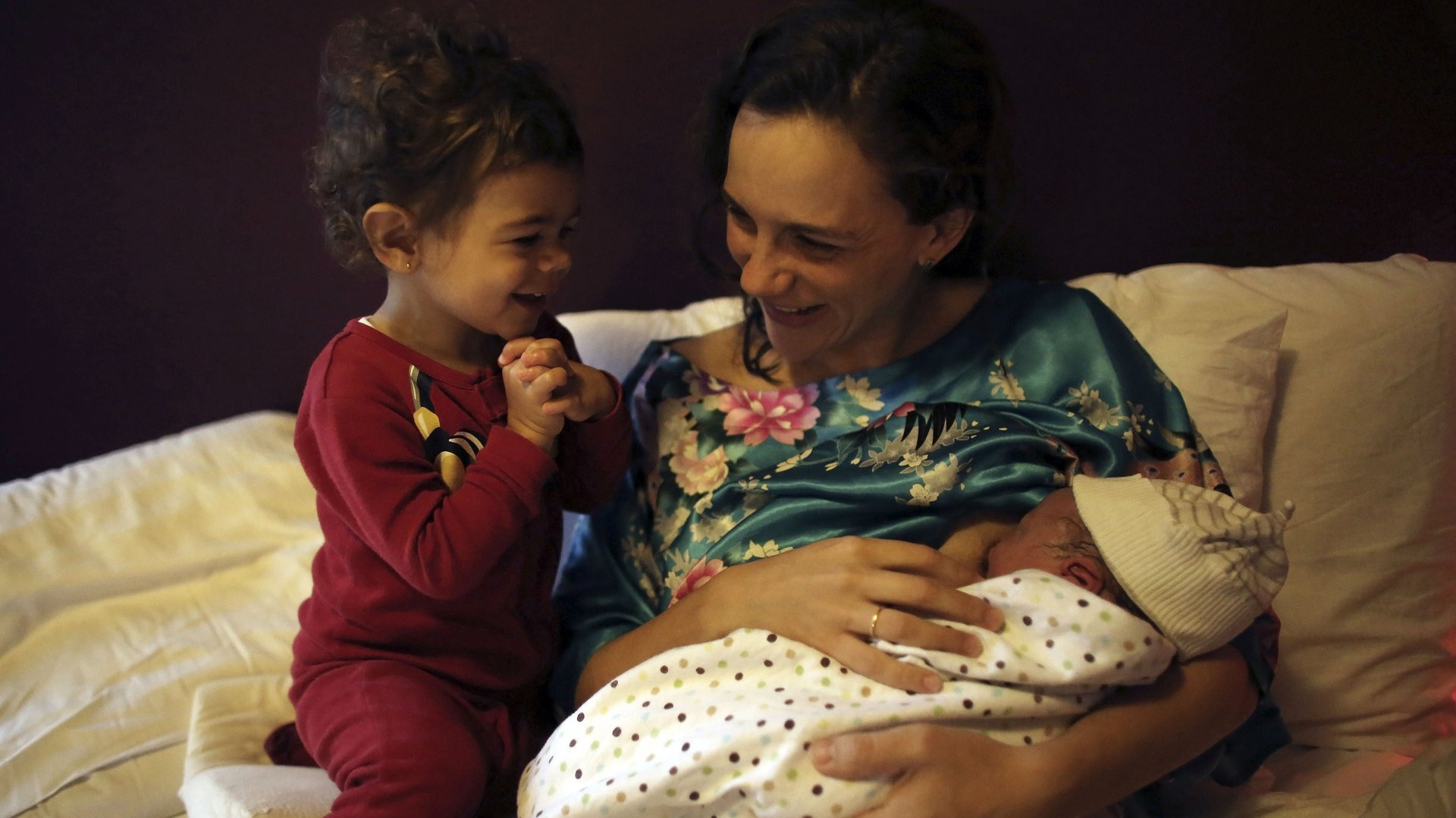Bacteria in your mom’s gut may have influenced the way you fight off infections today
Scientists have reason to believe that some of our immune system may have been shaped by the single-cell organisms that lived in your mother’s gut.


Scientists have reason to believe that some of our immune system may have been shaped by the single-cell organisms that lived in your mother’s gut.
Researchers from the University of Bern in Switzerland published (paywall) research today (March 17) in Science that found that when pregnant mice were exposed to different types of intestinal bacteria, their pups had more immune cells ready to fight off infections, and fewer inflammatory immune cells.
Andrew Macpherson, a gastroenterologist at the University of Bern and lead author of the paper, told Quartz that mice whose mothers had been exposed to a low level of E. coli (the same notorious bacteria that caused food poisoning at Chipotle) gave birth to offspring who were better prepared to deal with possible pathogens in the futures.
Macpherson explained that we have lots of bacteria in our guts that don’t actually cause infection. There, they produce a variety of benign molecules, some of which are vitamins or amino acids. Even though they stay isolated in the gut, the chemicals they produce make their way throughout the body, and can even be transferred through the placenta and breast milk of pregnant mice.
Macpherson and his team worked with mice that don’t have any kind of bacteria in their bodies. They gave what he calls “transient colonization” of E. coli to mice so that their intestines would react to the bacteria, but not actually become sick. Before the mice gave birth, all of the bacteria had died. When they compared the offspring of mice that had been given E. coli to those that had not, they found the first group had more of the DNA associated with immune response activated. They had more white blood cells ready to produce antibacterial proteins at the first instance of infection, and fewer cells responsible for inflammatory reactions, too much of which can be detrimental to our health.
“In layman’s terms, the innate immune system has been turned on,” he said. The offspring of completely sterile mice were not as prepared to handle the flood of microbes that comes to colonize babies after birth.
Because this study was done on mice, implications for human health are extrapolations. Macpherson says it will never be possible to test this connection on humans because it would be so dangerous to wipe out the microbiomes of mothers and babies, like they did with the mice. But, he thinks that if researchers have a better understanding of how maternal bacteria colonies affect her child’s immunity, they could develop new ways of treating childhood intestinal disease and malnutrition. “Intestinal immunity…also allows the intestine to function properly,” he said.